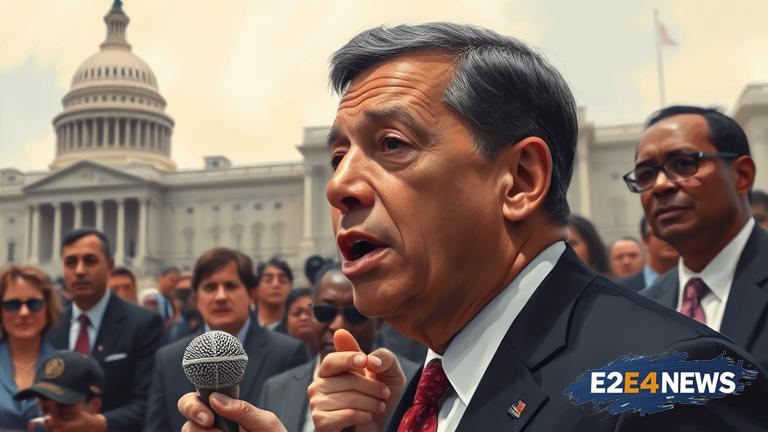The United States Senate, once a beacon of democratic governance, has devolved into a dysfunctional body, plagued by partisan gridlock and ineffectiveness. Cory Booker, a prominent senator, has captured the essence of this decline, highlighting the institution’s inability to address pressing national issues. The Senate’s failure to pass meaningful legislation, coupled with its propensity for petty squabbles, has eroded public trust and undermined the very foundations of American democracy. The consequences of this dysfunction are far-reaching, with the nation’s most vulnerable populations often bearing the brunt of the Senate’s inaction. From the lack of progress on gun control to the stalled efforts on climate change, the Senate’s ineptitude has become a hallmark of modern American politics. The rise of partisan politics has contributed significantly to this decline, as senators increasingly prioritize party loyalty over the nation’s interests. The 24-hour news cycle and social media have also played a role, creating an environment in which senators are more focused on soundbites and publicity stunts than on substantive policy work. Furthermore, the Senate’s arcane rules and procedures, such as the filibuster, have become tools for obstructionism, rather than mechanisms for facilitating constructive debate. The result is a legislative body that is incapable of responding to the nation’s most pressing challenges, from economic inequality to racial injustice. Cory Booker’s critique of the Senate’s dysfunction is not merely a partisan broadside, but a call to action, urging his colleagues to reclaim the institution’s lost purpose and restore its ability to govern effectively. The senator’s words are a stark reminder that the US Senate’s decline is not inevitable, but rather a consequence of choices made by its members. To revitalize the institution, senators must prioritize bipartisanship, civility, and a commitment to the public interest. This will require a fundamental transformation of the Senate’s culture, as well as reforms to its rules and procedures. Ultimately, the fate of American democracy hangs in the balance, as a dysfunctional Senate undermines the nation’s ability to address its most pressing challenges. The US Senate’s decline is a symptom of a broader crisis in American governance, one that requires a concerted effort to revitalize the institution and restore the public’s trust. As the nation looks to the future, it is imperative that senators like Cory Booker continue to sound the alarm, pushing their colleagues to reclaim the Senate’s lost purpose and restore its ability to govern effectively. The US Senate’s dysfunction is a complex issue, with deep roots in the nation’s history and politics. To address this challenge, senators must be willing to engage in constructive dialogue, seeking common ground and compromise, rather than resorting to partisan posturing. The nation’s future depends on the Senate’s ability to rise above its current dysfunction, embracing a new era of cooperation and governance. By working together, senators can revitalize the institution, restoring its ability to address the nation’s most pressing challenges and uphold the public’s trust. The US Senate’s decline is a wake-up call, urging Americans to demand more from their elected representatives and to hold them accountable for their actions. As the nation moves forward, it is essential that the Senate’s dysfunction is addressed, ensuring that the institution remains a vibrant and effective component of American democracy.
